Balanced Living
Seeds – Small But Mighty (and mighty delicious!)
Posted by Arja on October 9 in Nutrition
In the world of snacks, protein, and dairy milk alternatives, nuts get a lot of attention, and for good reason as they’re chock full of beneficial nutrients. But what about the humble seed? These tiny nutritional powerhouses should be a part of your weekly, if not daily diet, and there are lots of ways to use them. The bonus? They’re typically not an allergen, and often safe to consume even where nuts are not allowed.
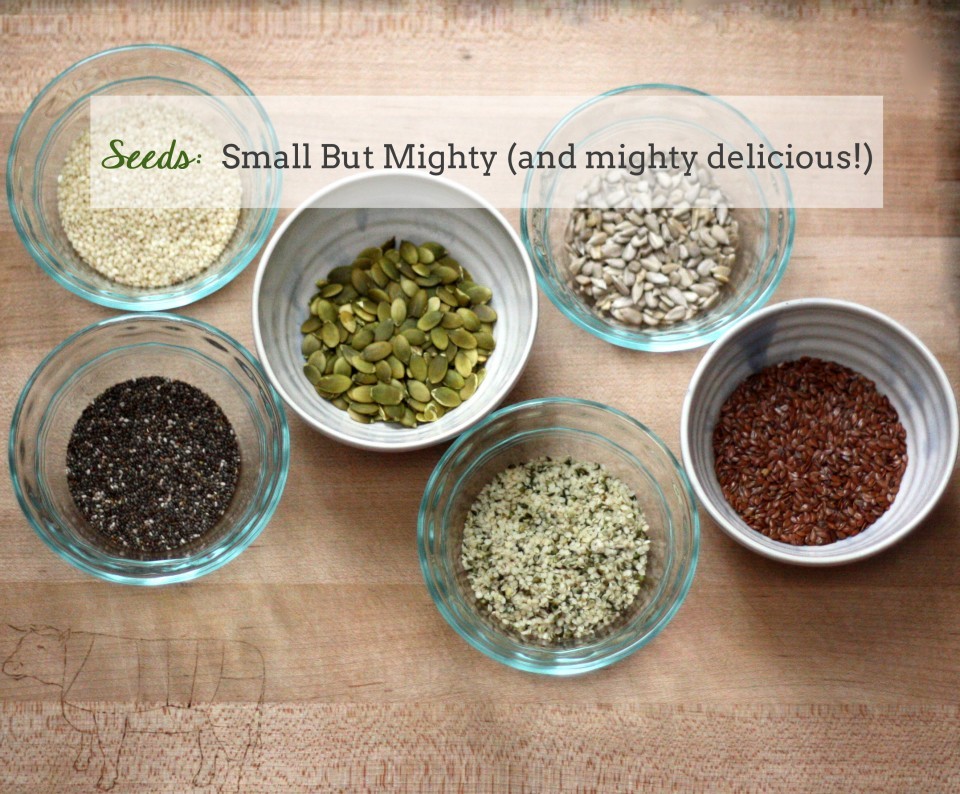
Seeds are terrific on top of salads or soups, mixed into trail mix and granola, incorporated into snack bars or balls, added to shakes, sprinkled onto oatmeal, applesauce and yoghurt. Some seeds, like sunflower, sesame and pumpkin seeds can even be processed into smooth butters.
While each seed boasts its own lengthy list of nutritional attributes, there are some big players that are common to all of them.
Magnesium - Numerous studies have demonstrated that magnesium helps reduce the severity of asthma, lower high blood pressure, and prevent migraine headaches, as well as reduce the risk of heart attack and stroke.
Manganese – This trace mineral is involved in many enzyme systems, and also acts as a co factor to the enzymes used in energy production and glucose metabolism. Manganese is required for the synthesis of DNA and RNA, keeps your nervous system healthy, and promotes healthy bones and joints.
Fibre – Dietary fibre is made up of components of a plant cell wall, as well as some indigestible residues. Fibre is actually broken down into insoluble, soluble, and lignans. A diet high in fibre is associated with better bowel movements, increased satiety after meals, better intestinal microflora, decreased cholesterol, and improved blood sugar control.
Essential Fatty Acids – There are a number of health conditions that are now linked to an insufficient intake of essential fatty acids, Omega-3 in particular. Because the body cannot make Omega-3 and Omega-6 fatty acids they must be obtained through diet. EFAs are transformed into compounds called prostaglandins that carry out a number of roles in the body. They are involved in the regulation of
Inflammation, pain, and swelling
Blood pressure
Blood clotting
Allergic response
Heart function
Nerve transmission
Gastrointestinal function
Hormone synthesis
Steroid production
EFAs also help keep our skin and hair supple and healthy.
There is no question that all of the seeds included are incredibly good for you, but individually they possess some health benefits that are worth mentioning.
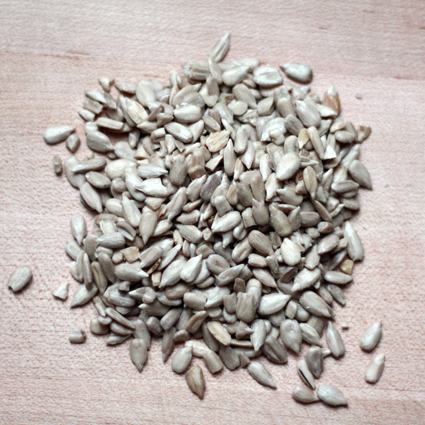
Sunflower
Nutritional Notes
-protein
-very high in vitamin E
-selenium
Vitamin E has been shown to lower the risk of heart disease, as well as have anti-inflammatory and antioxidant roles. Selenium works synergistically with Vitamin E, and is essential in the function of the antioxidant enzyme glutathione peroxidase, which protects cells from damage.
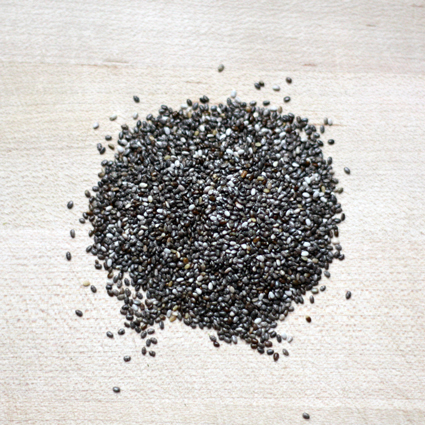
Chia
Nutritional Notes
-high in Omega 3 fatty acids
-high in fibre
-calcium
Chia seeds are pretty remarkable for a seed that it so small. Unlike flax you don’t need to grind them to access all the beneficial nutrients. They’re full of healthy fats, fibre and calcium, and even expand when added to liquid to become a pudding-like consistency. If you haven’t tried making a chia pudding yet, check it out! ? cup of seeds added to one cup of liquid is all you need. Add a natural sweetener to taste and top with fruit.
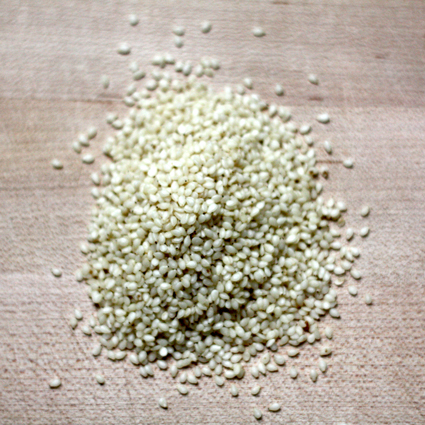
Sesame
Nutritional Notes
-protein
-lignans
-copper
-monounsaturated fats
-calcium
-zinc
-iron
Sesame seeds are often overlooked, though many people don’t even realize they’re consuming them in the paste form, tahini. These little seeds are an excellent vegetarian protein source, especially rich in tryptophan and methionine. They also contain lignans, and one in particular, sesamin, is an antioxidant that may help reduce blood cholesterol levels.
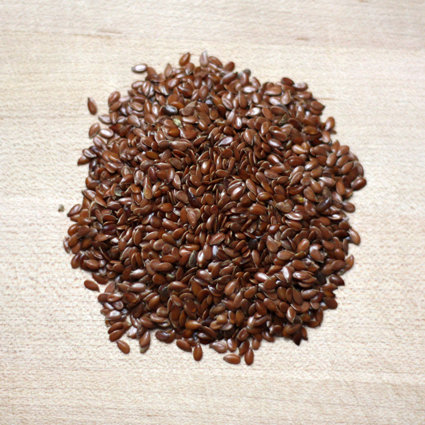
Flax
Nutritional Notes
-excellent source of Omega 3 fatty acid ALA
-phytoestrogens known as lignans
-potassium
Some of the major health benefits of flax seeds come from the ALA content (which provides almost twice the Omega-3 of fish oil, thought is must be converted to a long chain fatty acid), and lignans.
Flax seeds are often used with women to help balance hormones as the lignans bind to estrogen receptors interfering with cancer promoting estrogen effects on breast tissue. Flax also increases Sex Hormone Binding Globulin, which helps regulate estrogen levels. Early research is showing ALA may have some benefits in reducing heart disease and breast cancer risk.
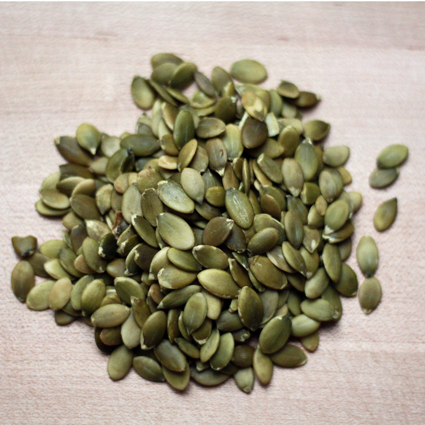
Pumpkin
Nutritional Notes
-zinc
-EFAs
-phytosterols
-iron
-copper
Pumpkin seeds are often used to help with prostate conditions due to their content of zinc, EFAs, phytosterols. One of the phytosterols helps block the conversion of testosterone into a more potent form that encourages prostate growth.
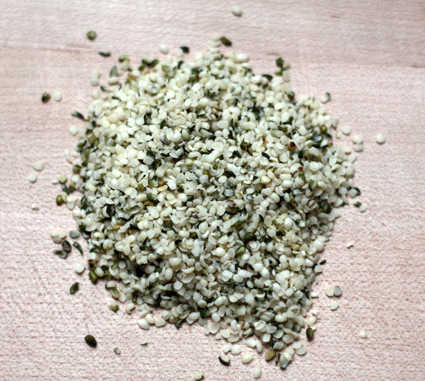
Hemp
Nutritional Notes
-high in protein
-EFAs Omega 3 and 6
-high in iron
-high in zinc
Hemp seeds are higher in protein than chia and flax, with 3 tbsp supplying you with 10g of plant-based protein. They’re easy to sprinkle on to cold and hot cereal, pancakes and waffles, fruit, or anything else that could use a boost. They also make a great milk alternative when blended with water, and unlike other nuts/seeds don’t require any soaking first. I often add hemp hearts to me homemade almond or cashew milk.
Seeds are often used to increase protein intake (they are safe to use in most nut-free environments), as well as help women balance hormones. They can easily be found in the bulk bins of most health food stores, as well as in packages. They’re easy to incorporate into your daily diet, so rotate which ones you’re using to maximize nutritional benefits.
I'd love to help you figure out which seeds are best for your health concerns and give you ideas about how to use them. Contact me for a free 15 minute discovery session to find out more about working with me.



